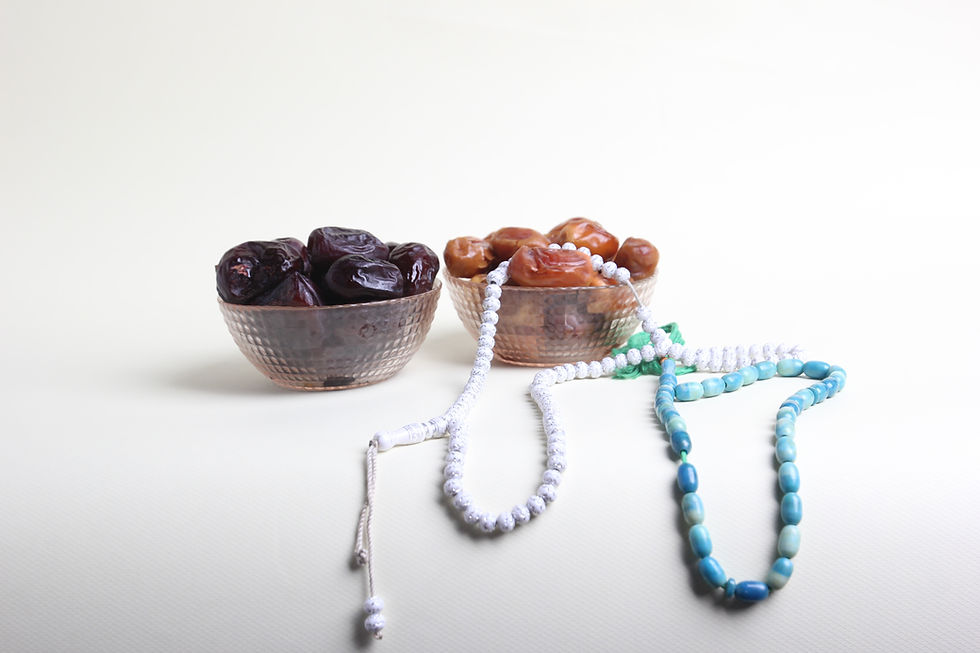Nourishing Recovery: A Dietitian's Guide to Ectopic Pregnancy
- Dahlia Abou El Hassan

- Dec 17, 2023
- 3 min read
Author: Dahlia Abou El Hassan, MScFN, RD

Ectopic pregnancy can be a challenging experience, both physically and emotionally. As you navigate through the treatment and recovery process, it's crucial to focus on nourishing your body with the right nutrients to support healing. In this blog, we'll explore what ectopic pregnancy is, how it's treated, and discuss essential nutrients and foods to aid in your recovery journey.
Ectopic pregnancy occurs when an embryo implants outside the uterus, typically in the fallopian tubes. This condition results in a non-viable pregnancy and can pose serious health risks to the mother if left untreated. The most common treatment for ectopic pregnancy is the administration of medication or surgery to remove the ectopic tissue. In some cases, physicians may suggest expectant management, especially after IVF where discontinuing the progesterone in oil injections can help the body absorb or pass the ectopic and initiate a bleed. It is critical to closely monitor your body for any signs of a ruptured ectopic, these signs may include left shoulder pain, lower back pain, abdominal pain on one side, dizziness, weakness, fainting, vaginal bleeding, nausea, vomiting, and rectal pressure. It's important to note that some women with an ectopic pregnancy may not experience all of these symptoms, and the severity of symptoms can vary. If you suspect an ectopic pregnancy or experience severe abdominal pain with any bleeding during pregnancy, it is crucial to seek immediate medical attention.
While medical professionals handle the primary aspects of treatment, proper nutrition can play a supportive role in your recovery. Recovering from an ectopic pregnancy involves prioritizing nutrient-dense foods that support healing and overall well-being. A balanced and nutritious diet can play a crucial role in the recovery process. Here are key nutrients and their food sources that may be beneficial during this time:
1. Protein:
Sources: Lean meats (chicken, turkey, fish), eggs, dairy products, legumes (beans, lentils), tofu, and nuts.
Role: Protein is essential for tissue repair and immune function, aiding in the recovery process.
2. Iron:
Sources: Lean meats, liver, spinach, fortified cereals, beans, lentils, and dried fruits.
Role: Iron is important for replenishing red blood cells and preventing fatigue, especially if there has been significant blood loss.
3. Folate:
Sources: Leafy green vegetables (spinach, kale), citrus fruits, legumes, and fortified grains.
Role: Folate supports cell division and can be crucial for healing damaged tissues.
4. Calcium:
Sources: Dairy products (milk, yogurt, cheese), fortified plant-based milk, leafy green vegetables, and tofu.
Role: Calcium is vital for bone health and muscle function, providing strength during recovery.
5. Vitamin C:
Sources: Citrus fruits (oranges, lemons), strawberries, bell peppers, and broccoli.
Role: Vitamin C aids in collagen formation, which is essential for wound healing and tissue repair. Vitamin C increases the absorption of iron in the body.
6. Omega-3 Fatty Acids:
Sources: Fatty fish (salmon, mackerel), flaxseeds, chia seeds, and walnuts.
Role: Omega-3 fatty acids have anti-inflammatory properties and support cardiovascular health.
7. Zinc:
Sources: Meat, dairy products, nuts, seeds, and legumes.
Role: Zinc is involved in immune function and tissue repair, promoting a faster recovery.
8. Vitamin D:
Sources: Fatty fish, fortified dairy or plant-based milk, and exposure to sunlight.
Role: Vitamin D aids in calcium absorption and supports bone health.
9. Hydration:
Sources: Water, herbal teas, and hydrating foods like fruits and vegetables.
Role: Staying well-hydrated is essential for overall health and aids in the body's healing processes.
10. Fibre:
Sources: Whole grains, fruits, vegetables, and legumes.
Role: Fibre supports digestive health, which can be particularly important during the recovery period.
Recovering from an ectopic pregnancy involves both medical attention and self-care, including proper nutrition. By focusing on nutrient-dense foods, you can provide your body with the essential building blocks for recovery and promote overall well-being during this challenging time. Always consult with your healthcare provider or a registered dietitian for personalized advice based on your individual needs and circumstances.





Shoulder pain can also happen on the right side. I had an ectopic on my left tube and felt pain in my right diaphragm and right shoulder.